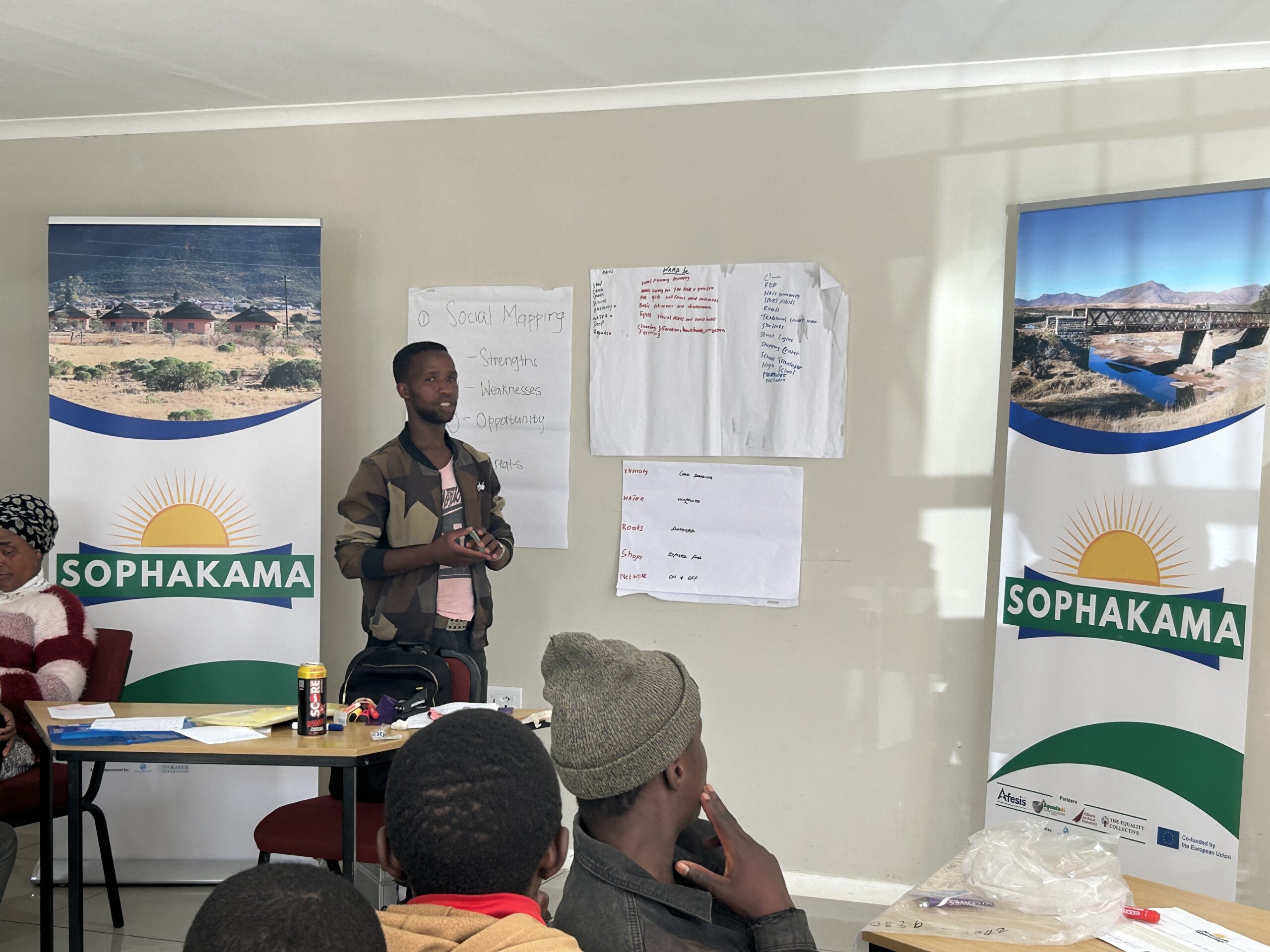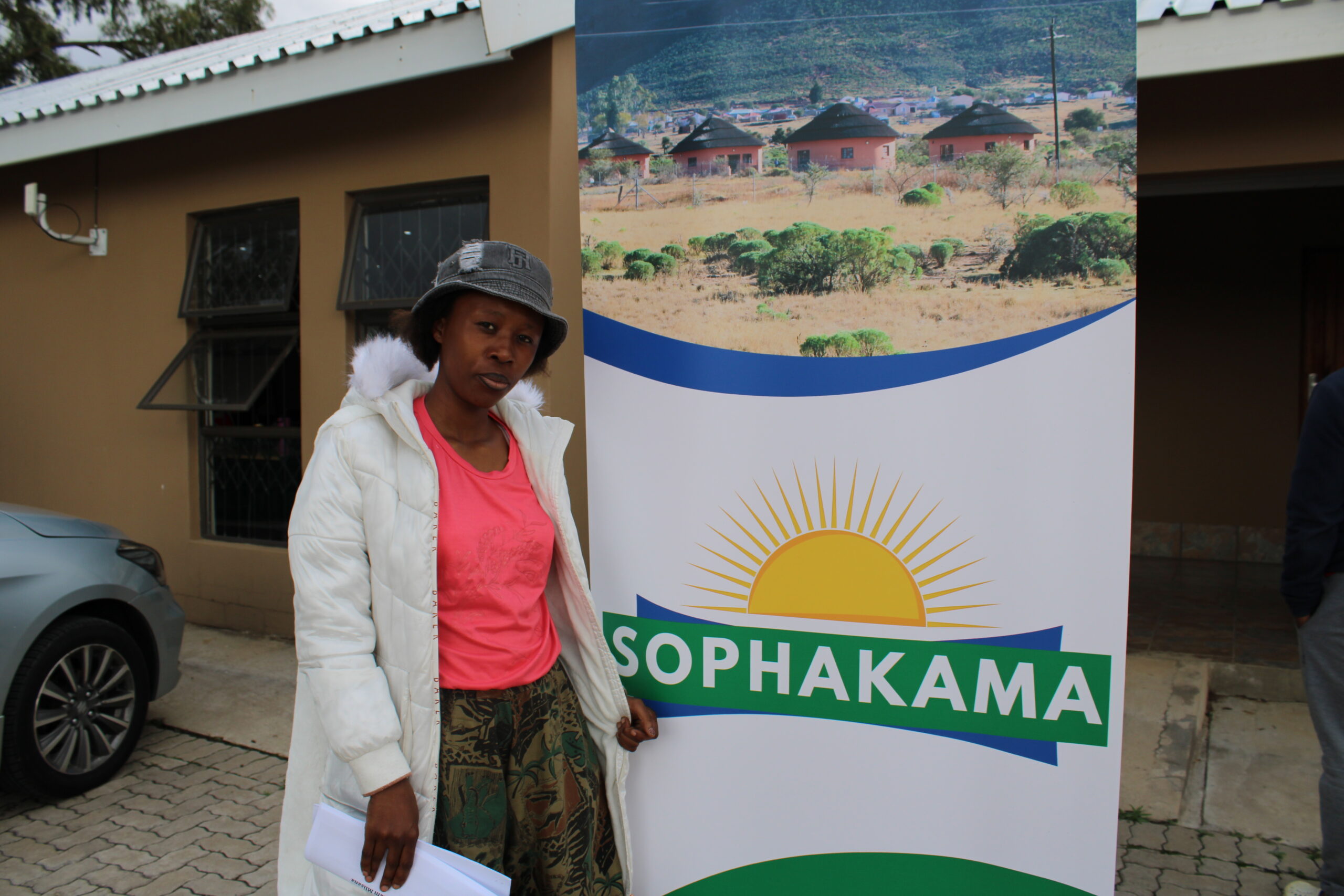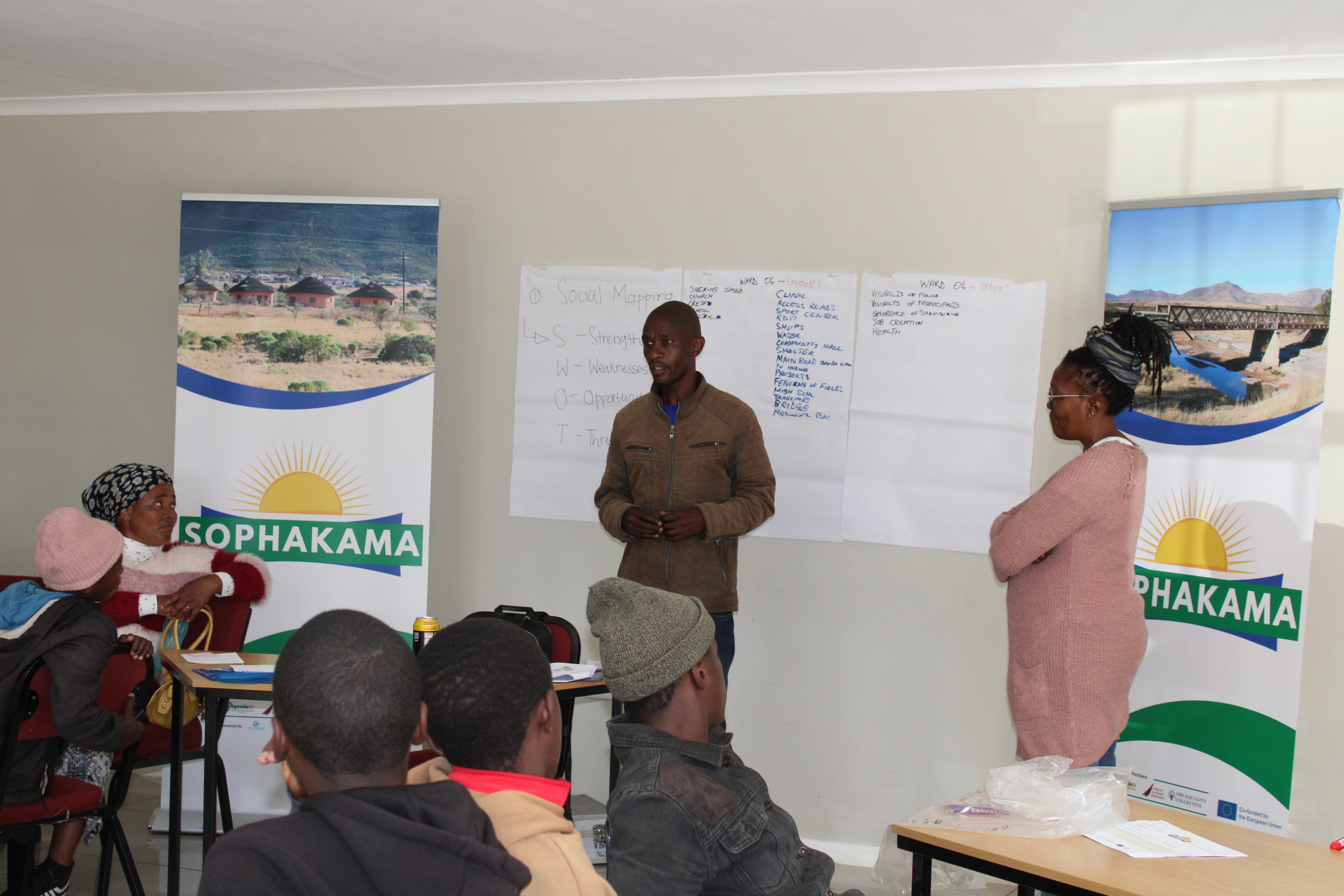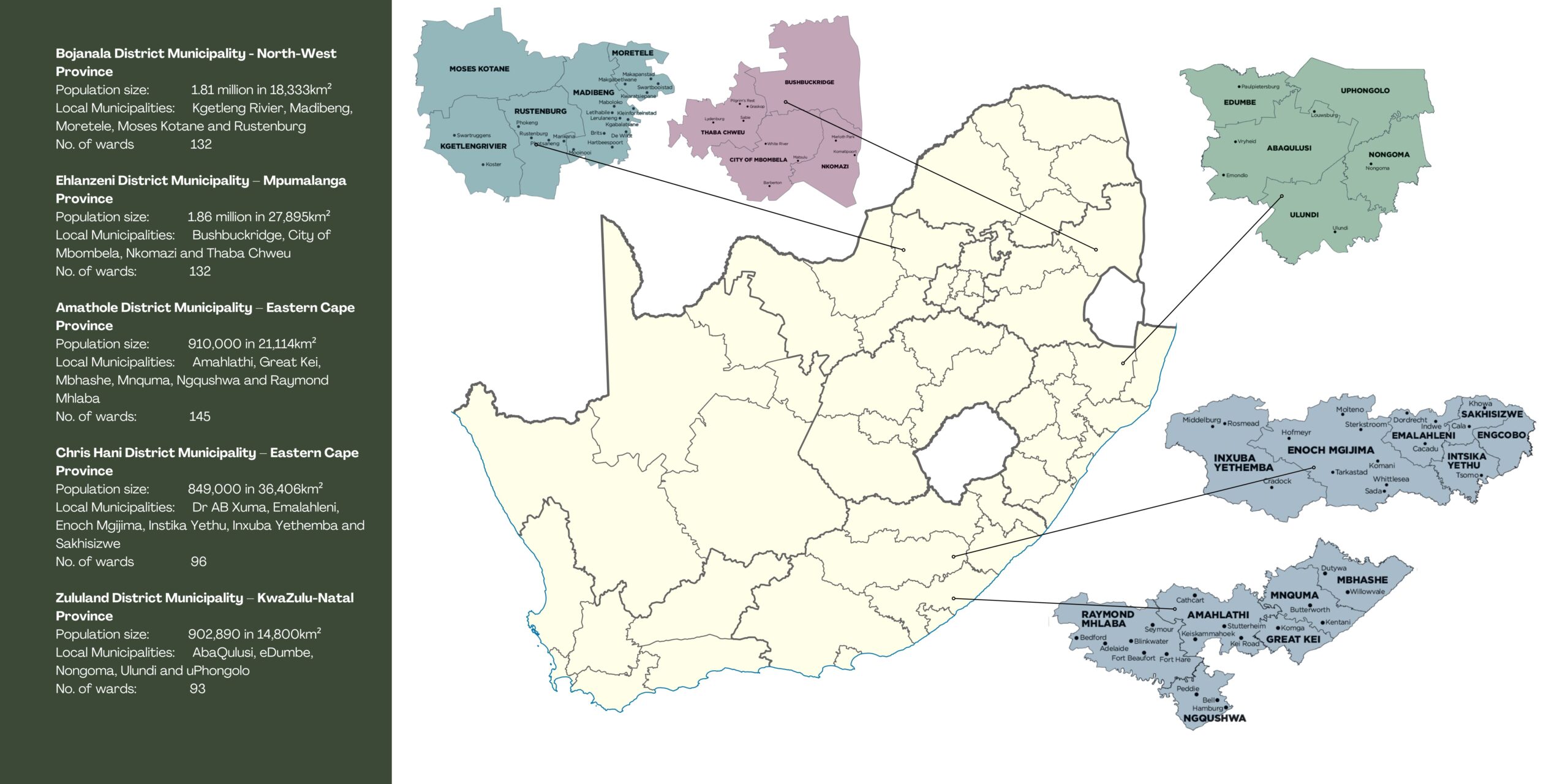(We Rise)
Sophakama
SOPHAKAMA
Contextual background
Approximately 63% of the South African population is said to be living below the poverty line where poverty is understood to be the denial of opportunities choice most basic to human development to lead a healthy and productive life and to enjoy a decent standard of living characterised by freedom, dignity, self-esteem and respect for others. Coming into power in 1994, the ANC had noted in its Reconstruction and Development policy document that “it is not merely the lack of income which determines poverty. An enormous proportion of very basic needs are presently unmet”.
Poverty and inequality accompany unemployment. Research points to overwhelming evidence that poverty and unemployment are highest in former homeland provinces. Thirty years into democracy, former homelands still present the same characteristics they did under apartheid; they are geographically fragmented, have poor infrastructure, have little economic activity, and limited employment opportunities. More than 17 million South Africans live in former homeland provinces.
The wall-to-wall system of democratic local government was meant to address the service delivery and infrastructure challenges in former homeland and rural provinces, but political interference, corruption, instability, weak oversight and capacity, a culture of disdain for the law and other systemic challenges derailed local government over the years. With limited economic and income opportunities in former homelands, rural municipalities have weak revenue-generating capacity, and a majority of households are indigent. Many rural households are unfortunately unable to opt out of municipal services; when water does not come out of the tap, they have very little option but to drink from streams with animals.
Sophakama is directly concerned with the strengthening of social accountability in local government as a necessary step towards the improvement of service delivery and towards the advancement and progressive realisation of socio-economic rights. The programme recognises the agency that rests with people living in former homelands and intends to partner with rural activists and progressive community leadership structures in pursuit of improved social accountability and basic service delivery. Sophakama unapologetically contributes to the global goal of improving the quality, inclusion, respect, and engagement of people in all their diversity in all spheres of public and private life.



About Sophakama
Sophakama seeks to build civic agency and strengthen social accountability across rural municipalities as a response to poor governance, weak finance management, and lack of service delivery. The overall objective of this action is to empower rural activists and local community leadership structures to actively influence municipal planning and budgeting processes, and to hold local government accountable for basic service delivery thereby improving local government’s capacity for service delivery, its accountability, transparency and responsiveness. The primary beneficiaries of this intervention are residents located in the targeted 20 rural municipalities in which the intervention will be implemented. The programme is intentional in prioritising the interests of women and girls and other marginalised groups in rural development.
The target municipalities are in four Provinces all of which incorporate former homeland areas. Sophakama aims to address poverty, inequality, and unemployment in South Africa, particularly in former homeland provinces where these issues are most prevalent. Despite democratic reforms, these regions still suffer from poor infrastructure, limited economic activity, and high unemployment rates. The project intends to collaborate with rural activists and community leaders to empower residents and enhance their engagement with local authorities. By focusing on improving quality, inclusion, and respect for diverse voices, Sophakama aligns with global goals for societal advancement.
Programme Objectives
- To mobilise and support rural communities in the targeted communities to pursue a collective agenda for social change;
- To support leadership structures in the targeted rural community to engage local government on the delivery of basic services;
- To strengthen existing democratic institutions especially those that are tasked with enhancing local governance; and
- To learn for adaptability, to learn with others and to facilitate opportunities for scaling up this intervention.
Outcomes and results
- Community groups and community leaders are organised around a common agenda.
- The capacity of rural community leaders is built and they are effectively engaging local government and are driving a commonly agreed to agenda for social change.
- Rural communities have been supported to articulate and agree to an agenda for social change.
- The capacity of rural community leaders is built and they undertake social auditing of publicly funded infrastructure projects.
- Rural communities increasingly participate in municipal oversight structures.
- Rural communities participate and influence the elections and decision-making of traditional councils.
- Increased engagements between targeted rural communities and local democratic structures such as ward committees and the ward councillor, to influence legislated municipal planning and to strengthen the capacity of such structures to advocate for improved service delivery.
- Structured learning is facilitated and learning products are developed and distributed.
- A strategy to guide communication and policy advocacy is developed and implemented.
- Engagements with strategic stakeholders are facilitated to create opportunities for scaling up this intervention.
- A policy reform agenda is determined and pursued through strategic advocacy.
- The capacity of partner rural communities to proactively prepare for the 2026 local government elections is built and communities engage political parties using their agenda for social change to secure broad commitments for implementation.
Theory of change
Our theory of change is influenced by an understanding of how social change happens. Social change occurs when affected individuals decide to mobilise themselves, organise and work together towards a common goal. Social change is fired from the bottom and the heat builds its way up to influence policy, legislation and decisions made by those in power. For this action, our theory of change can be summarised as follows:
IF rural communities in former homelands organise, collectively articulate and pursue a social change agenda; AND if they partner with others in civil society who must help build their technical capacity and support their action; THEN rural communities will be better empowered to engage their local municipalities (and other government departments) on service delivery in coordinated and impactful ways; AND the quality of services provided by a more responsive and accountable local government will improve, which will ultimately improve the quality of life for many in rural communities; AND other civil society organisations and rural communities will see, learn and apply similar methods to strengthen social accountability in their localities; AND local government in its entirety will begin to shift its developmental mandate.
